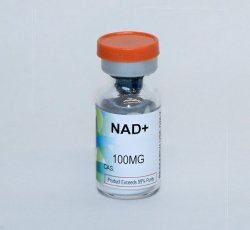Expédition
Fabricant
Description
NAD+ is a coenzyme found in all living cells and is essential for various biological processes, including energy production and DNA repair. Harness the benefits of naturally occurring metabolic enzymes with NAD+, an oxidizing agent that sets the foundation for a clean liver and strong cardiovascular system. Think of NAD as a helper molecule in energy metabolism within cells. It converts nutrients into energy, and functioning can also lead to neurocognitive benefits, like sharpened focus and improved memory.
Peptide Storage
Best Practices For Storing Peptides
To preserve the integrity of laboratory results, proper storage of peptides is essential. Correct storage practices can maintain peptides for years and guard against contamination, oxidation, and degradation that may render your peptides, and therefore experiments, useless. While some peptides are more susceptible to degradation than others, knowing and implementing the best practices for peptide storage can greatly lengthen their stability and integrity regardless of composition.
Once peptides have been received, it is imperative that they are kept cold and away from light. If the peptides will be used immediately, or in the next several days, weeks or months, short-term refrigeration under 4C (39F) is generally acceptable. Lyophilized peptides are usually stable at room temperatures for several weeks or more, so if they will be utilized within weeks or months such storage is typically adequate.
However, for longer term storage (several months to years) it is more preferable to store peptides in a freezer at -80C (-112F). When storing peptides for months or even years, freezing is optimal in order to preserve the peptide’s stability.
Additionally, it is important to avoid repeated freeze-thaw cycles. This can increase the peptide’s susceptibility to degradation. Also, frost-free freezers should be avoided to store peptides, as temperatures can fluctuate widely during defrosting cycles.
Storing Peptides In Solution
The shelf life of peptide solutions is far less than that of lyophilized peptides, and peptides stored in solution are also vulnerable to bacterial degradation. Peptides containing Cys, Met, Trp, Asp, Gln, and N-terminal Glu in their sequences have especially short shelf lives when in solution.
Nevertheless, if peptides absolutely must be stored in solution, sterile buffers at pH 5-6 should be used, and the peptide solution should be separated into aliquots to avoid repeated freezing and thawing. Peptide solutions are generally stable for up to 30 days when refrigerated at 4C (39°f), but those peptides with inherent instability should be kept frozen when not in use.
- Sous-total :
- 85.00
- Réduction :
- 0.00
- Taxe :
- $0.00
- Total :
- $85.00

